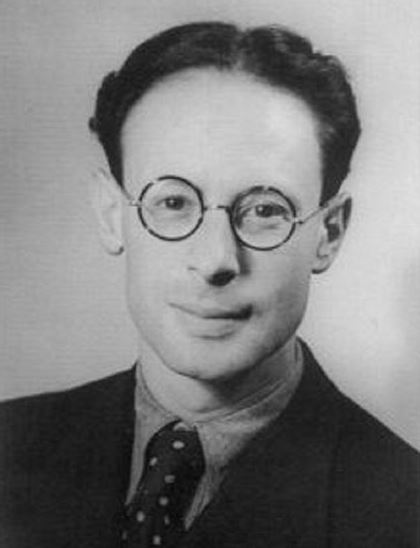André Weil (1906–1998) was a French mathematician renowned for his profound contributions to number theory, algebraic geometry, and the development of modern mathematics. Weil was a founding member of the influential Bourbaki group and is considered one of the leading mathematicians of the 20th century. His work laid the groundwork for much of modern mathematical research, and his theories continue to shape contemporary mathematics.
Early Life and Education
André Weil was born on May 6, 1906, in Paris, France, into an intellectual family. His sister, Simone Weil, became a prominent philosopher and social activist. Weil showed an early talent for mathematics, and by the age of 16, he had read and mastered the works of great mathematicians like Gauss and Euler. He pursued his formal education at the prestigious École Normale Supérieure in Paris, where he studied under leading mathematicians of the time, including Jacques Hadamard.
Weil also spent time studying abroad, including in Germany and Italy, where he further broadened his mathematical knowledge and interests, particularly in algebraic geometry and number theory.
Key Contributions to Mathematics
1. Algebraic Geometry
Weil is perhaps best known for his revolutionary work in algebraic geometry, a branch of mathematics that studies solutions to polynomial equations using geometric methods. He played a crucial role in formulating the Weil conjectures, which provided a framework for understanding the relationship between algebraic geometry and number theory. These conjectures were later proven by mathematicians such as Alexander Grothendieck and Pierre Deligne and became foundational in modern algebraic geometry.
Weil’s ideas were critical in transforming algebraic geometry into a more rigorous and abstract field, leading to significant advancements in mathematics.
2. Weil Conjectures
The Weil conjectures were formulated in the 1940s and were inspired by Weil’s attempt to connect number theory with geometry. These conjectures dealt with the zeta functions of algebraic varieties over finite fields. Weil predicted the properties of these zeta functions, drawing an analogy to the Riemann hypothesis. The proofs of these conjectures in later decades revolutionized algebraic geometry and number theory.
- Rationality: Weil conjectured that the zeta function of a variety over a finite field is a rational function.
- Functional Equation: He proposed a symmetry in the zeta function, analogous to the functional equation for the Riemann zeta function.
- Betti Numbers and Poincaré Duality: Weil’s conjectures connected the behavior of the zeta function to the topological properties of varieties, bringing ideas from topology into number theory.
These conjectures were eventually proven, with Pierre Deligne’s proof of the Riemann hypothesis for varieties over finite fields in 1974 being the most celebrated result.
3. Number Theory
Weil made significant contributions to number theory, especially through his work on Diophantine equations (equations with integer solutions) and the Jacobi sum. His research extended classical results and applied modern algebraic methods to solve deep problems in the field.
One of his most famous contributions was his work on class field theory, which generalized the theory of quadratic forms and brought insights from algebraic geometry into the study of number fields.
4. Bourbaki Group
Weil was a founding member of the Bourbaki group, a collective of mathematicians who wrote under the pseudonym Nicolas Bourbaki. This group aimed to reformulate and systematize mathematics by writing a series of comprehensive textbooks on various mathematical subjects. The group’s work, which focused on rigor, abstraction, and unification, had a lasting impact on the development of mathematics in the 20th century.
Weil’s involvement in the Bourbaki project showcased his dedication to rigorous and abstract mathematical thinking, helping to shape the modern curriculum of mathematics worldwide.
Weil’s Influence and Legacy
1. Influence on Modern Mathematics
Weil’s work profoundly influenced many areas of mathematics, including number theory, algebraic geometry, and arithmetic geometry. His innovative ideas about the connections between geometry and number theory paved the way for further developments in both fields.
2. Weil Representation
The Weil representation is a projective representation of the symplectic group that plays an important role in number theory and mathematical physics, particularly in the theory of automorphic forms and modular forms. Weil’s insights in this area have had far-reaching consequences for later developments in these fields.
3. Awards and Honors
Throughout his life, Weil received numerous prestigious awards for his contributions to mathematics. These include the Wolf Prize in 1979 and the Kyoto Prize in 1994. His influence extended beyond his publications, as he mentored many students who themselves became influential mathematicians.
Personal Life and Philosophical Views
Weil’s personal life was as complex as his mathematical ideas. He had a deep interest in philosophy and was particularly influenced by Indian and classical philosophies during his time in India. His sister, Simone Weil, a philosopher and mystic, also had a significant impact on his intellectual life.
Weil’s philosophical reflections on the nature of mathematics were insightful. He viewed mathematics as a deeply creative and abstract discipline, often comparing it to the arts in its demand for intuition, rigor, and elegance.
Later Years and Death
In his later years, Weil remained an influential figure in mathematics, continuing to publish and engage with the mathematical community. He moved to the United States, where he held teaching positions at the Institute for Advanced Study in Princeton, New Jersey, alongside figures like Albert Einstein and John von Neumann.
André Weil passed away on August 6, 1998, in Princeton, leaving behind a monumental legacy that continues to shape modern mathematics.
André Weil was a giant in 20th-century mathematics, with his work spanning several foundational areas, including algebraic geometry, number theory, and the philosophy of mathematics. His groundbreaking contributions, particularly the Weil conjectures and his work on the Bourbaki project, have left an indelible mark on the field. Through his innovative thinking and dedication to rigor, Weil reshaped mathematics, creating pathways for future generations of mathematicians.




